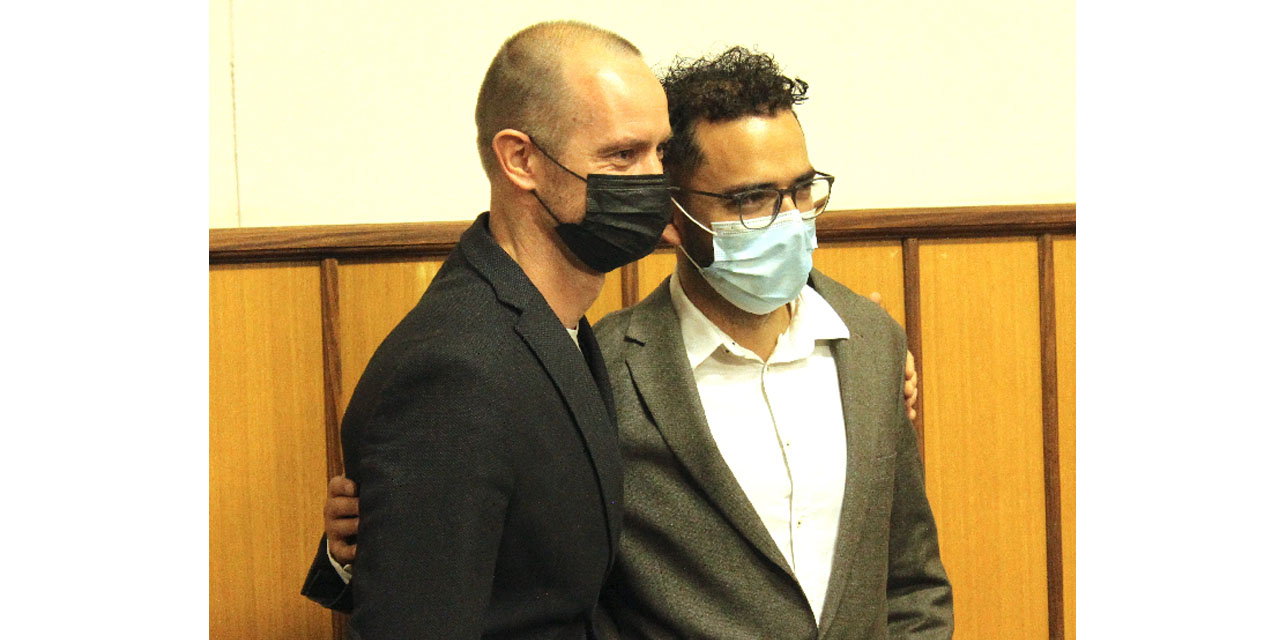Hertta-Maria Amutenja
The Supreme Court today reserved judgment in a matter in which same-sex couple, Phillip Luhl and Guillermo Delgado are fighting to have their son granted Namibian citizenship status. The child was born in 2019, via surrogacy, in South Africa.
Luhl, a Namibian is married to Delgado, a Mexican National. The Ministry of Home Affairs, Immigration, Safety and Security filed an appeal in the Supreme Court against a 2021 ruling in the High Court declaring that the couple’s first-born child be granted citizenship by descent.
The ministry’s position is that the child, a boy, could not be granted citizenship because Luhl and his partner, although are the legal parents cannot provide proof that they are biological parents of their son.
Moreover, the ministry is claiming that it is in the best interest of the child to know their genetic parents.
However, Luhl’s representatives from the Nixon Marcus Public law firm argued in court yesterday that because the two are legally married, they are the legal parents of the child and need not to provided genetic link.
“They have legal and valid proof that the child’s parents are Namibian.They do not need a certificate of birth for descent.” argued Uno Katjipuka-Sibolile, Luhl’s lawyer. She added that the ministry is not allowed to discriminate a minor child based on the parents’ sexual orientation and that sexual discrimination against homosexuality as individuals is not justified.
Furthermore, they said the Citizenship Act, does not list sexual orientation as a ground.
The appeal arguments were heard by Chief Justice Peter Shivute, Deputy Chief Justice Petrus Damaseb, Justice Sylvester Mainga , Justice Dave Smuts and Theo Frank. An announcement of the date of judgment will be made.
In November 2017, the Western Cape High Court in South Africa ordered that children born as result of surrogacy agreement are for all purposes the children of Phillip and Guillermo of which they have been both listed as parents on the birth certificate.
However the Namibia’s Home Affairs ministry is adamant that it does not recognize the court order and the South African Birth certificate, and insists on proof of genetic link between Philip and his son to determine parentage.
In April 2021 the Windhoek High court denied the couple’s twin daughters entry into Namibia. However, the following month the ministry issued them emergency travel documents to bring them into Namibia, on condition that they do not to leave the country. The girls were also born via surrogacy in South Africa.
In that matter, the ministry also demanded that Luhl undergoes a DNA test in order to determine parentage of the twins.
Namibia’s legal system does not recognise same-sex marriages and criminalises sexual contact between men, athough the law is seldom enforced.




